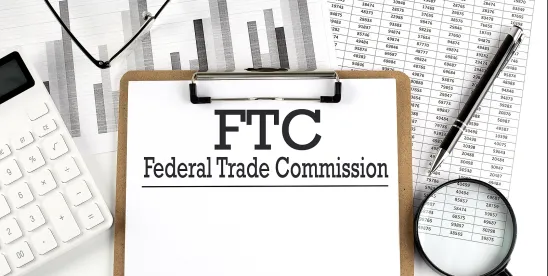As previously reported, the consolidated lawsuits challenging the Federal Trade Commission’s (FTC) non-compete ban sought a preliminary injunction and a stay until litigation is resolved concerning the FTC’s non-compete ban. On July 3, 2024, a federal judge in the US District Court for the Northern District of Texas decided that a preliminary injunction was appropriate and temporarily enjoined the non-compete ban from going into effect. It is important to note, however, that the court declined to issue a nationwide injunction to nonparties of the suit. In other words, the FTC’s non-compete ban is still set to take effect on September 4, for any employer that is not a party in the Ryan, LLC vs. The Federal Trade Commission lawsuit.
In its opinion, the court reasoned that the non-compete ban is likely unlawful because (1) the ban would be arbitrary and capricious since it is overly broad and not supported by the administrative record and (2) the FTC does not have substantive rulemaking authority and has exceeded its statutory authority by creating a ban for unfair methods of competition.
The court will issue a final decision on the merits of the lawsuit on August 30, likely resulting in a nationwide injunction that would extend to all nonparties of the suit. This decision will come just a few days ahead of the September 4 effective date for the non-compete ban. However, it is possible that a nationwide decision will be reached before August 30 due to a challenge to the rule in a Pennsylvania federal court, which is set to reach a decision on July 23.
Original post from May 13, 2024:
As previously reported, there were two lawsuits filed to challenge the Federal Trade Commission non-compete ban. Those cases are now essentially consolidated in the US District Court for the Northern District of Texas. The court recently issued an order setting a briefing schedule on the Motion to Stay the Effective Date and Preliminary Injunction (this motion seeks to stay the Final Non-Compete Rule until the litigation is resolved).
According to the plaintiff’s motion, there are several reasons that the court should stay the effective date and issue a preliminary injunction, including (1) unrecoverable costs associated with the time and attention needed to review all existing non-compete agreements and notify existing and former employees that they are no longer bound; (2) unrecoverable costs associated with the risk of loss of employees, client relationships, and confidential information; and (3) the need, if the rule is later found to be unenforceable, for employers to decide whether to enforce non-compete agreements against employees who left the employer for a competitor in the belief that the non-compete agreement was invalid (thus, forcing the employee to leave their new job).
According to the court’s order, a decision on that motion will be made by July 3, 2024.





 />i
/>i

